The elegance and depth of Yukimura Makoto’s writing leaves me in awe sometimes. In Vinland Saga he’s created a story founded on profound ideas. These are ideas that he places great importance on – his public statements on twitter (often in excellent English, though he rarely uses that language for this purpose) reflect his profound dismay over the state of the world. And not only that, on Japan’s responsibility to do more (in terms of accepting refugees, for example). Yukimura is no dilettante – he’s clearly focused a lot of his energy on wrestling with the issues Vinland Saga brings to light. Many things have changed in a thousand years, but perhaps not so much as we think.
There’s been an arc to this story, a patient and subtle layering of themes to bring us to the point we’re at now. With each act of man’s inhumanity to man, it becomes clearer that the problem not any specific man, any specific warrior of government. The problem is the world – this world, early 11th Century Scandinavia. The world is broken – “wrong”, as Einar puts it here. “It’s wrong for freedom to be taken away by violence”. It sounds so simple – I mean, of course it us. But it’s the basis on which this entire world operates.
The tragic tale of Arnheid and Gardar is at the center of this part of the story, and powerful and heartbreaking it is. But like everything else in Vinland Saga – Thors’ life and death, Askeladd’s season, Einar’s arc – it all comes back to Thorfinn. This is his saga – and in an Icelandic saga, that makes all the difference. This is the Saga Age we’re watching play out here, after all. It isn’t always immediately clear how what we’re seeing directly relates to Thorfinn, but it becomes clear in due time. That comes down to the mastery of Yukimura’s writing. You can’t necessarily look at a single plank and see where it fits in the finished structure, but Vinland Saga doesn’t have a nail out of place. And that becomes clear when you step back and take it in from a distance.
Arnheid doesn’t journey to Snake’s camp with the intent of trying to free her husband, I don’t think. She genuinely intends to treat his wounds, and to find a way to tell him what happened to their son. And she wouldn’t have had the chance to do that if it had been up to Snake, but one of his men takes pity on her and allows her to go to Garder. And the Gardar who apologizes to her and promises to make amends seems almost like the husband she knew back in Sweden. But Garder is still the wild animal he’s become – been forced to become. Death and blood follow him everywhere. and an increasingly irate Snake has a trail of it to follow.
Again, for all the terrible things we witness, it’s a simple conversation in the waning moments that winds up dominating the episode. Thorfinn has stayed up all night to make sure Einar doesn’t do something stupid, and neither of them have slept. The sheer unfairness of life consumes them. What hope can there be in such a world? Einar asks Thorfinn about his dream of slavery and war in the world. Thorfinn opines that most slavery comes as a result of war – stop war, and you eliminate most slavery. But how do you stop war in a land where every man is raised to believe that it’s the natural order of things?
I closed last week’s post this way:
Ultimately this all ties back to Thorfinn, in his spiritual infancy, trying to find a reason to believe there’s something better out there – and that it can be reached without killing those who would block his path. It seems impossible that he might find it in his world – but perhaps the answer lies in leaving that world behind altogether.
This is obviously the moment we’ve been building towards, but it felt almost like an epiphany as I watched the final scenes of that episode. It’s all been woven together so beautifully to get us to this point – every stitch, every strand. The moment when the true path became clear was like the sun breaking on the horizon in the dawn. Thorfinn knows that simply avoiding doing more damage to the world is not enough – he must create in equal measure to what he destroyed if he’s ever to find peace from the burden of the souls he carries. But whenever and wherever in this world he tries to do that, this world will find him.
Killing for peace is not the answer Thorfinn seeks, but it’s the paradox those who seek peace must confront. Gardar became a savage because this world did that to him. It always finds you. So the only solution, then, is to leave the world altogether, and build a new one someplace else. It’s audacious to say the least, but audacity is a quality all great explorers must possess. And one of those great explorers – and a fellow outcast – is headed towards Ketil’s farm now, with the King of Denmark in pursuit. This world will not let justice happen easily – already, Thorfinn and Einar are deeply entangled in Gardar’s terrible struggle. But the course has been laid in, and the real journey has finally begun – it not yet a journey of the body, certainly one of the soul.


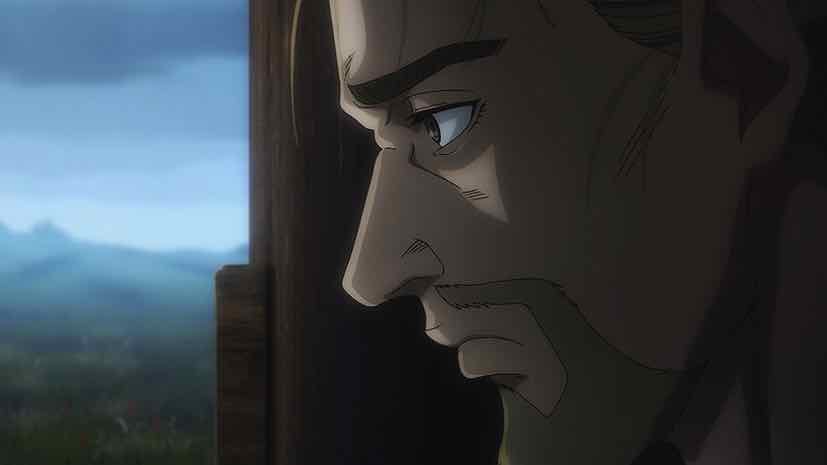


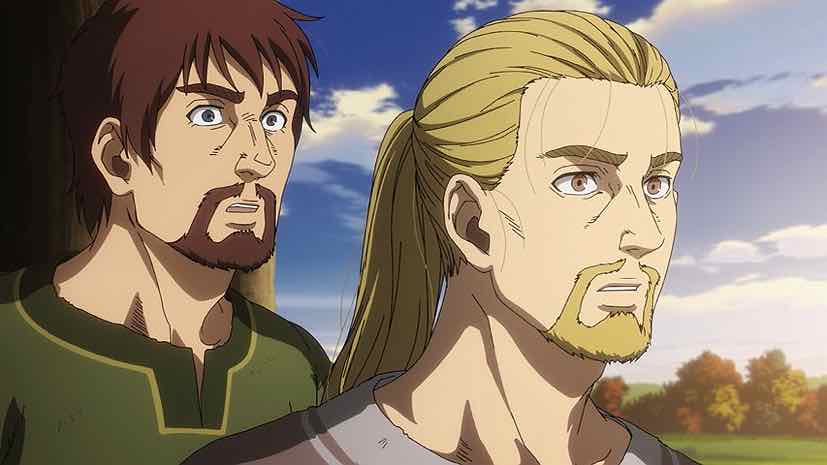
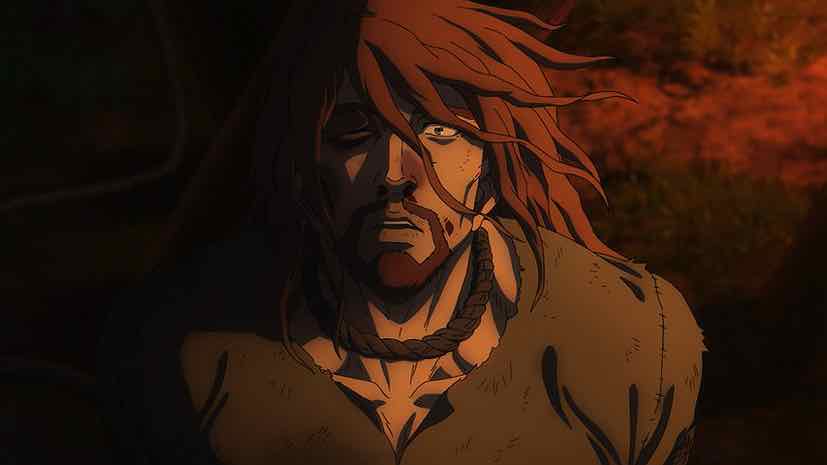

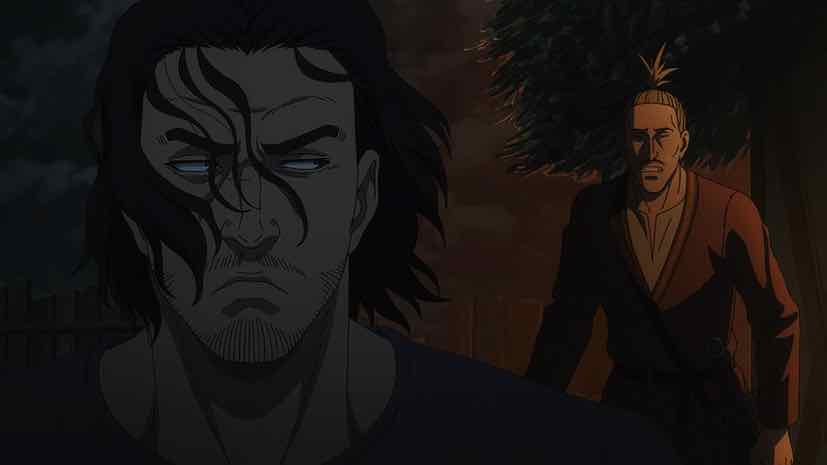

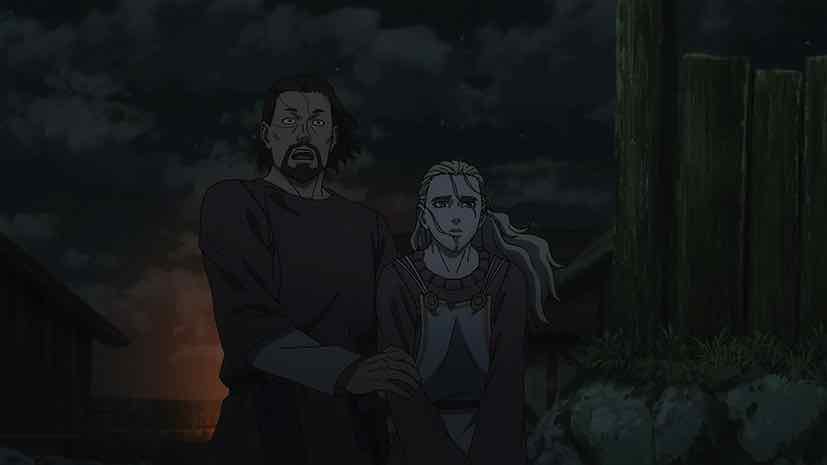
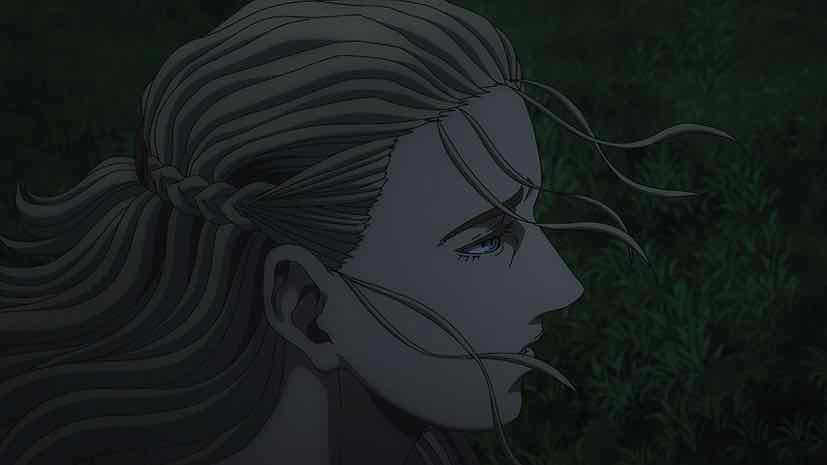
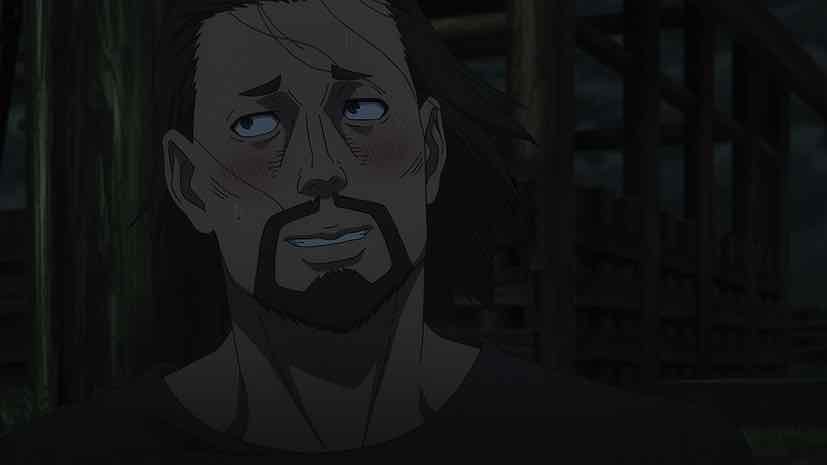
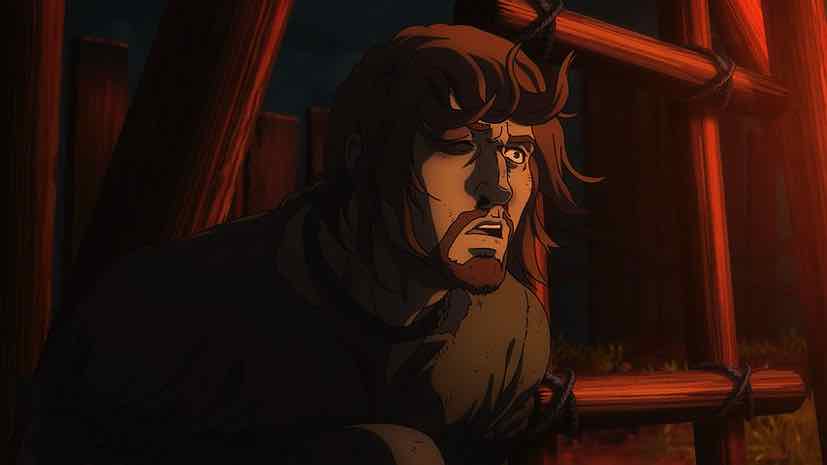
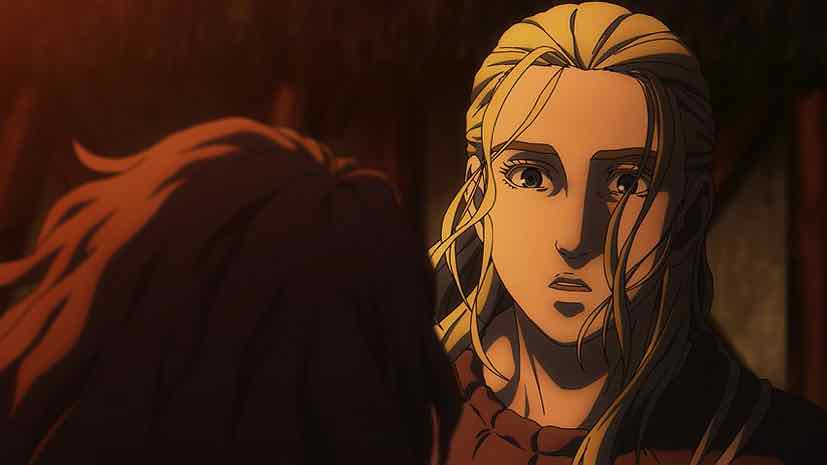
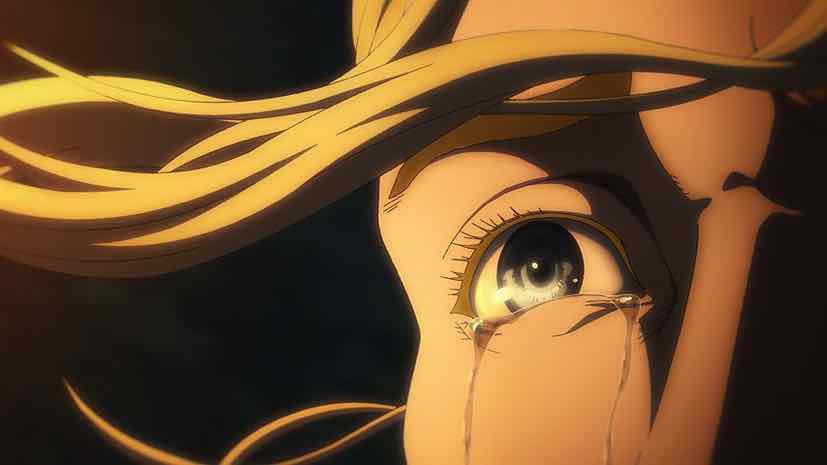
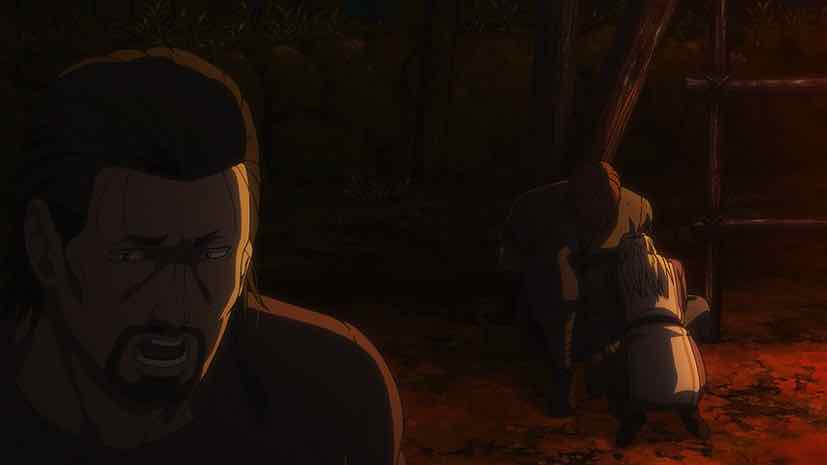
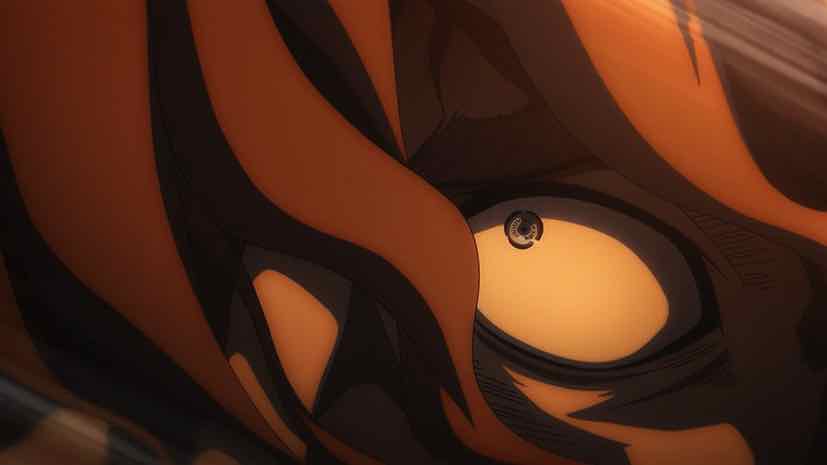
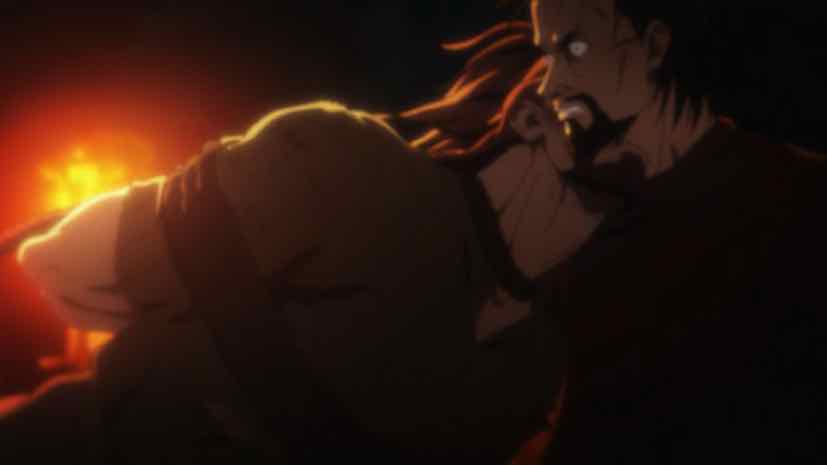
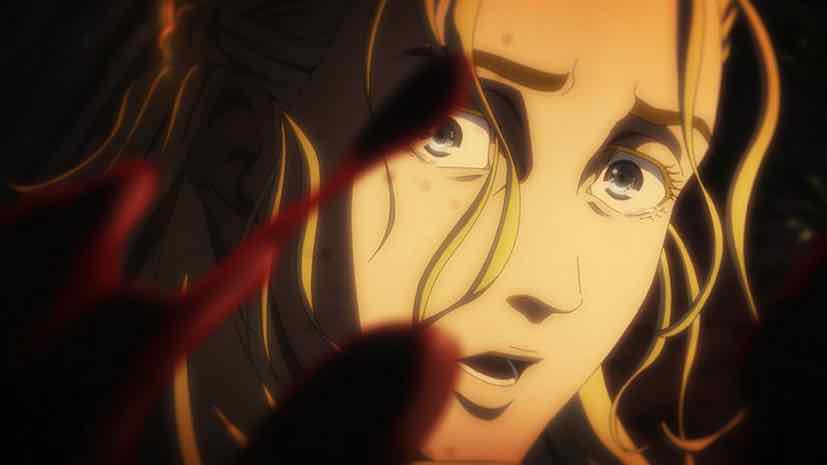

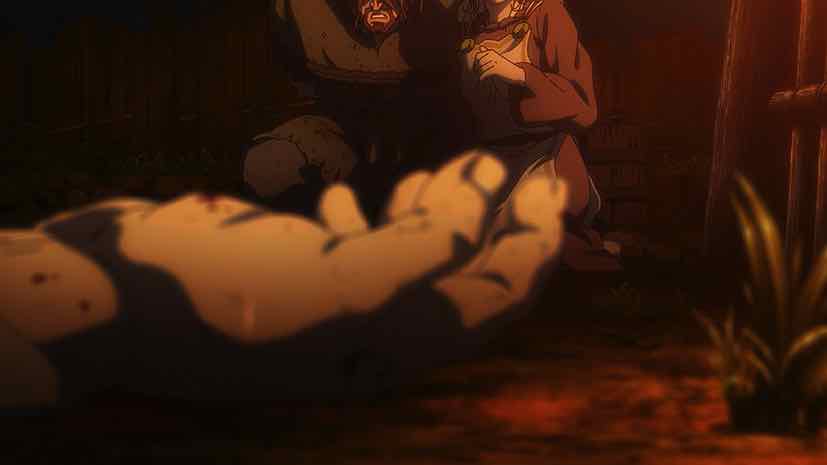
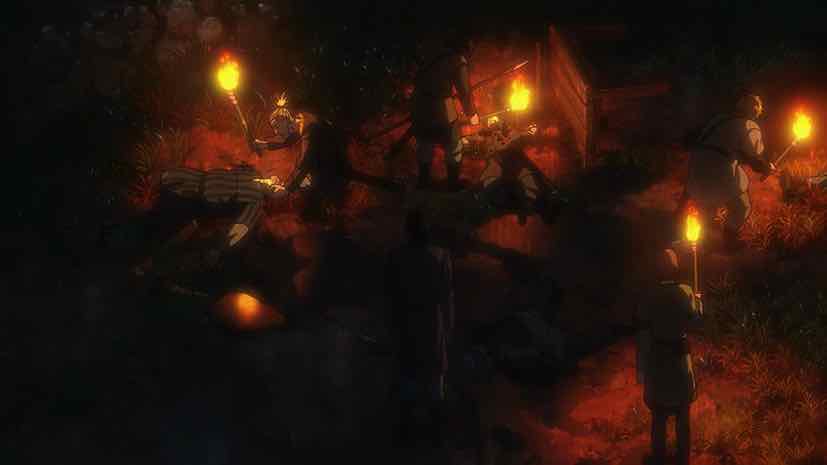
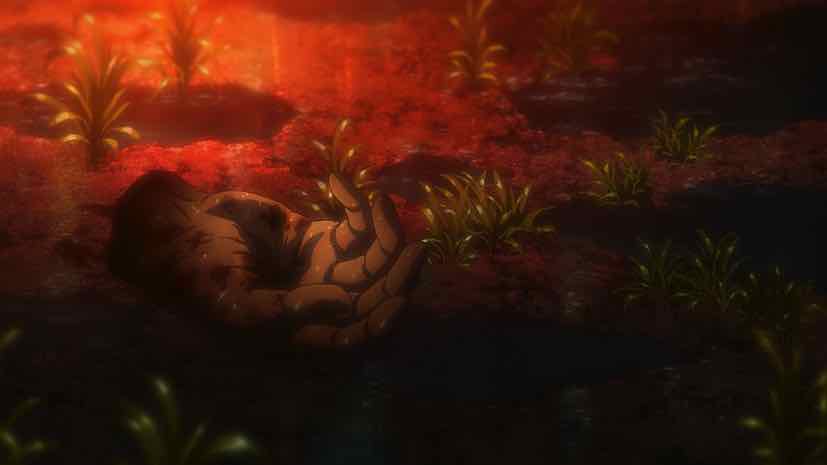
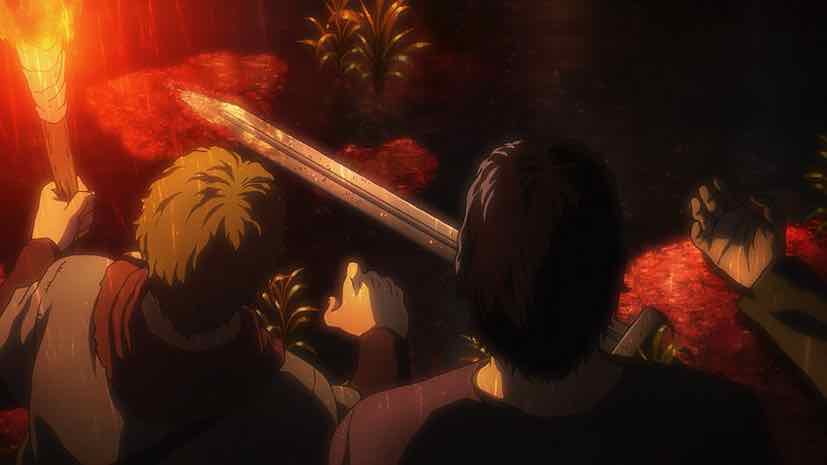
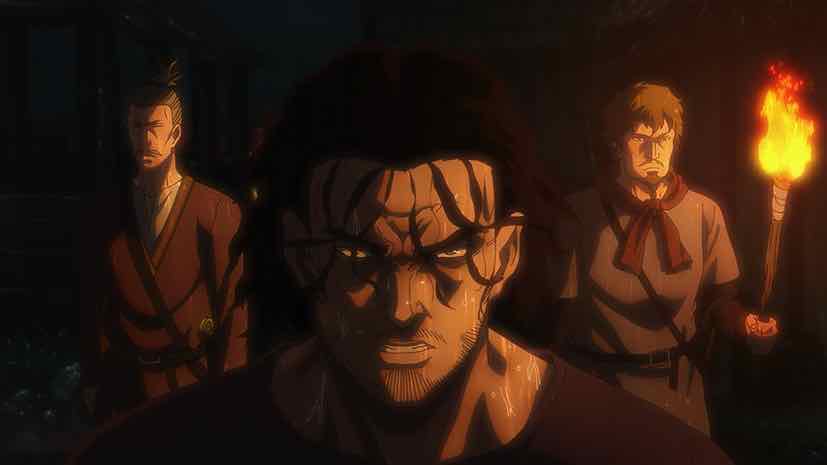
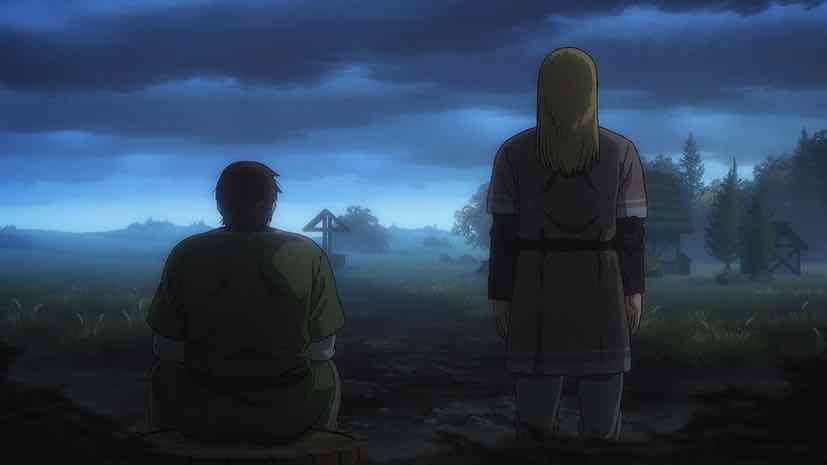


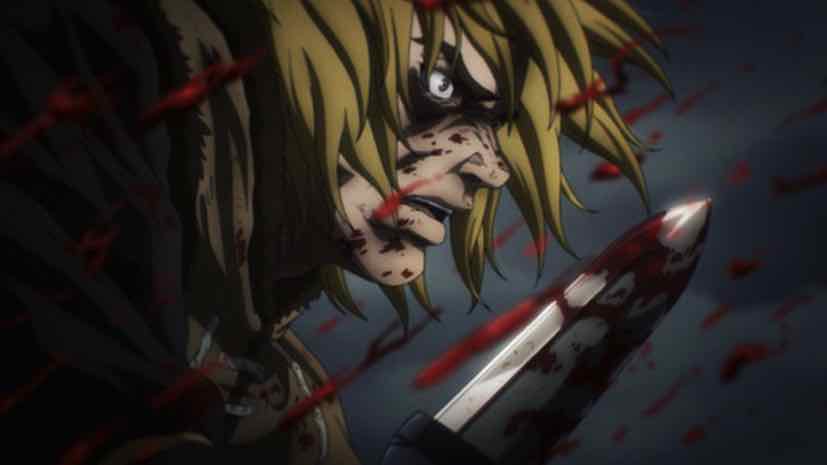

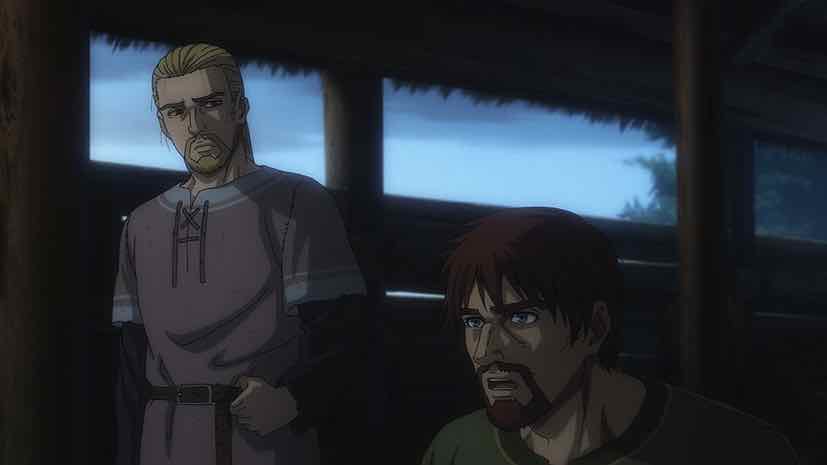
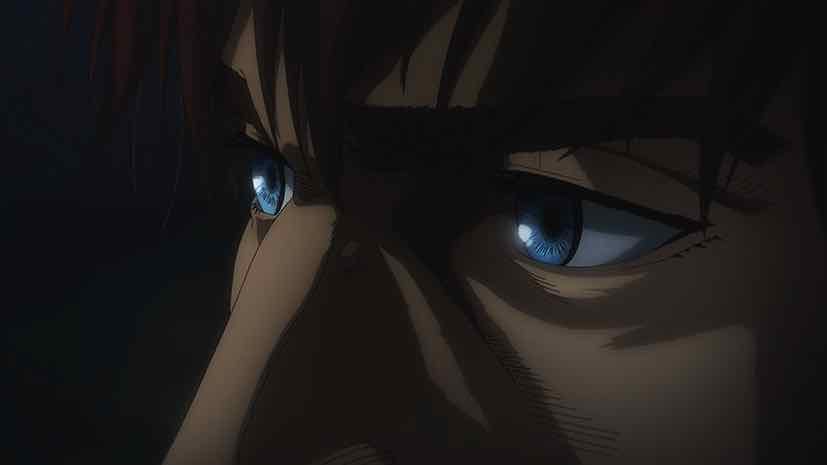
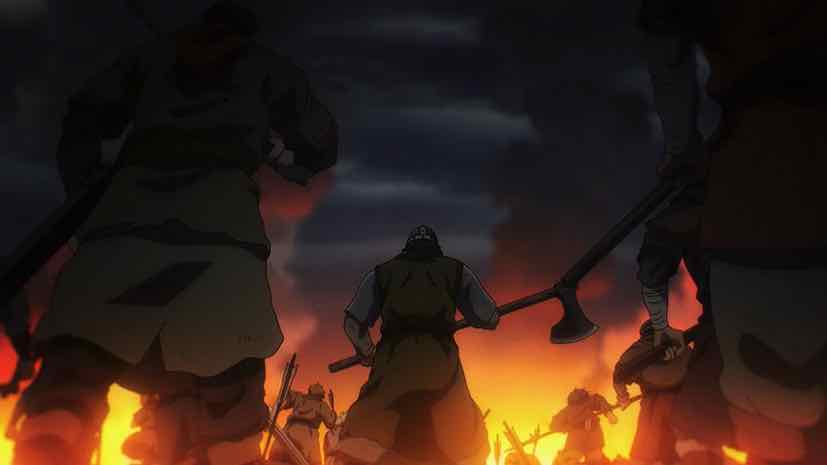
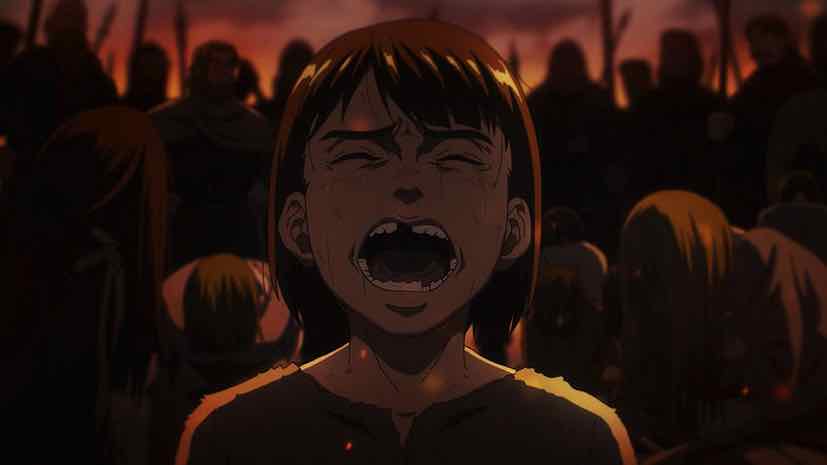


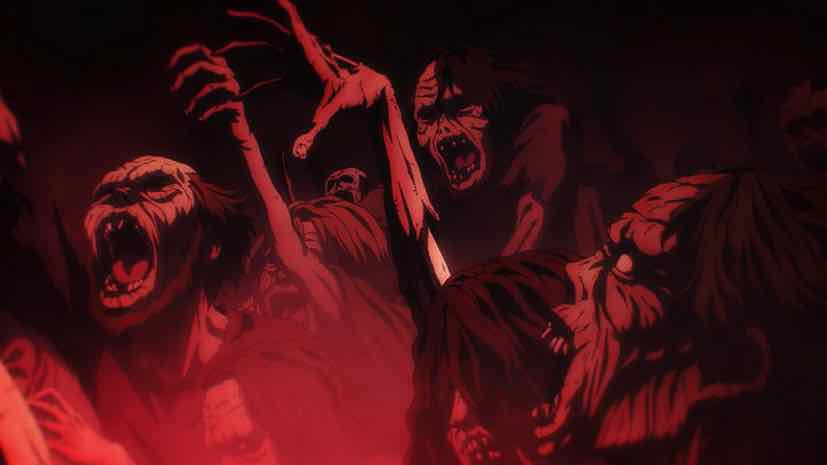
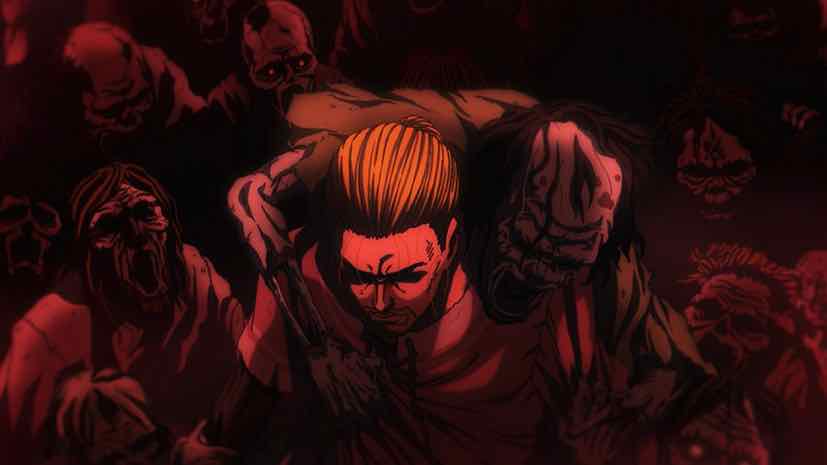
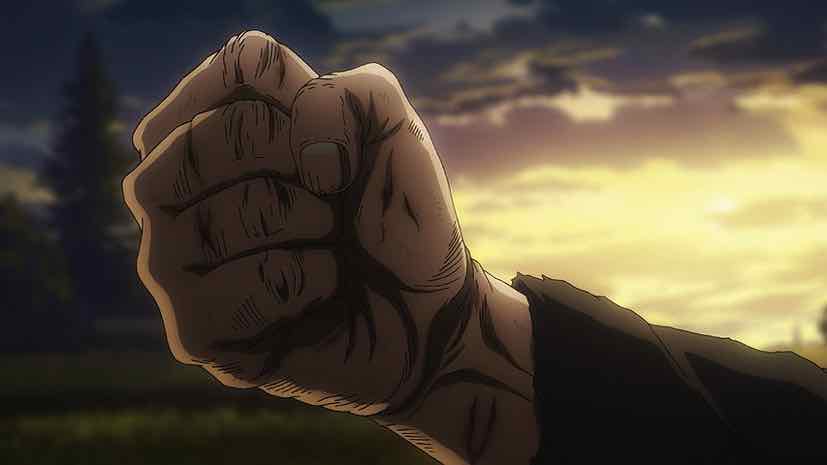




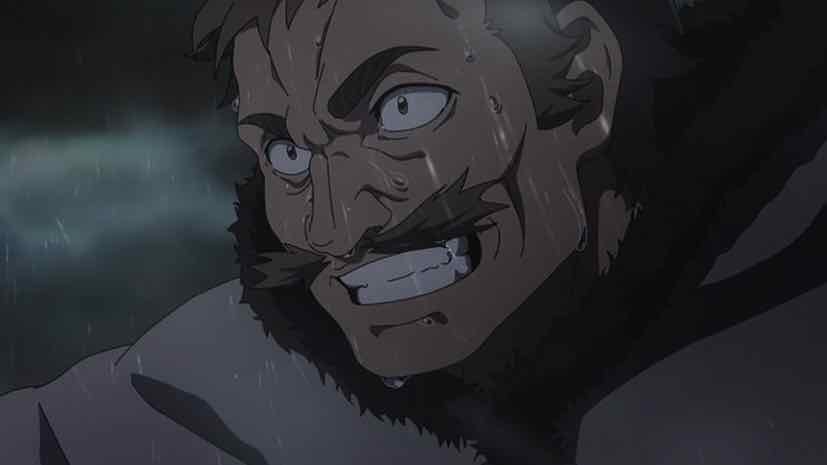
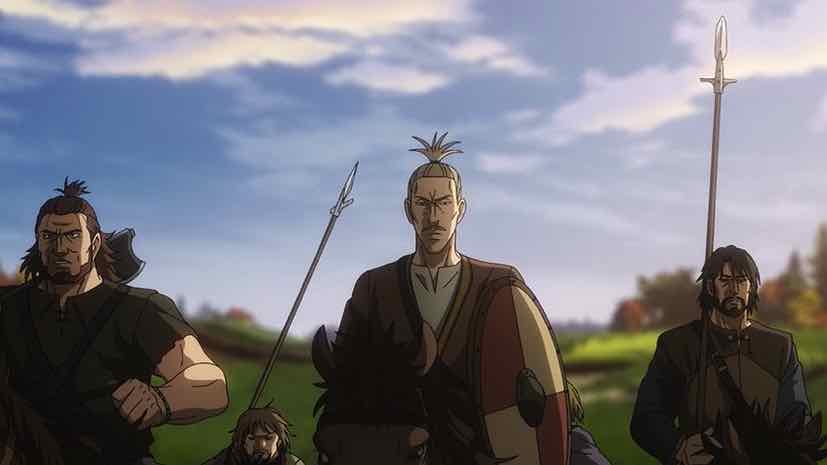
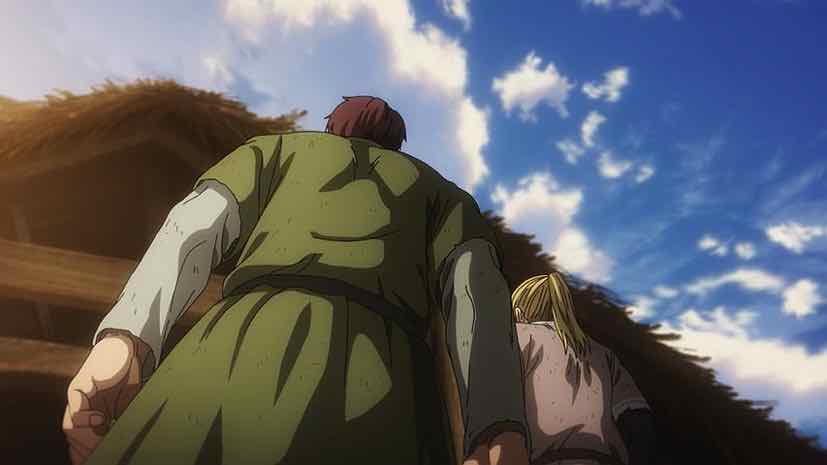
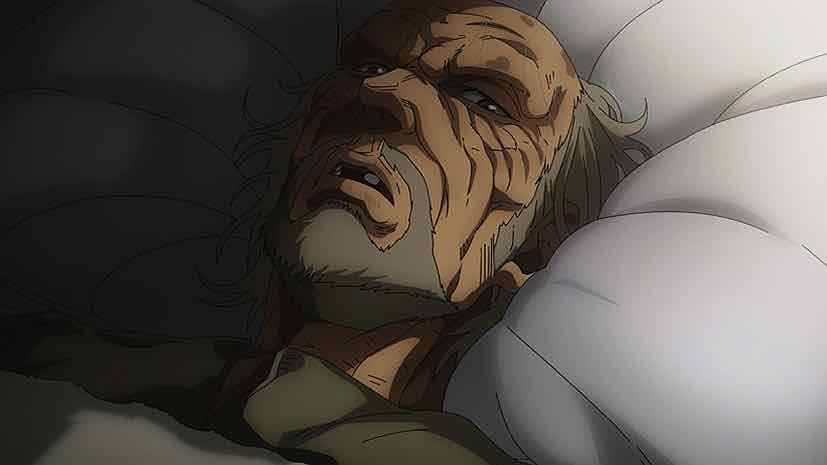

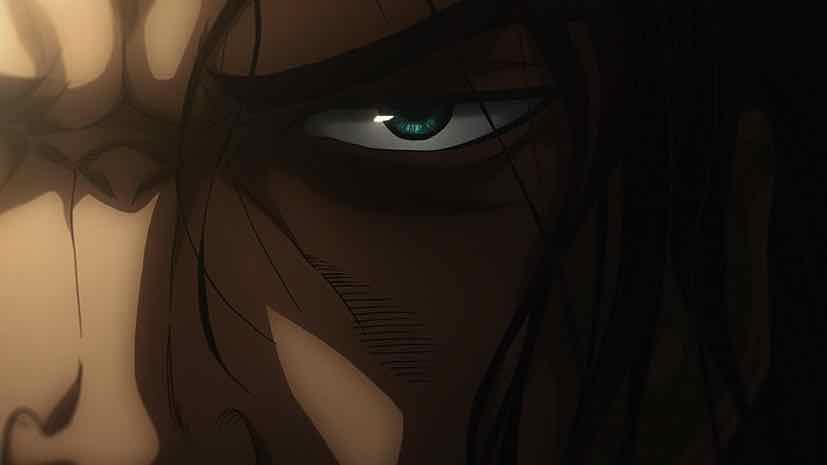
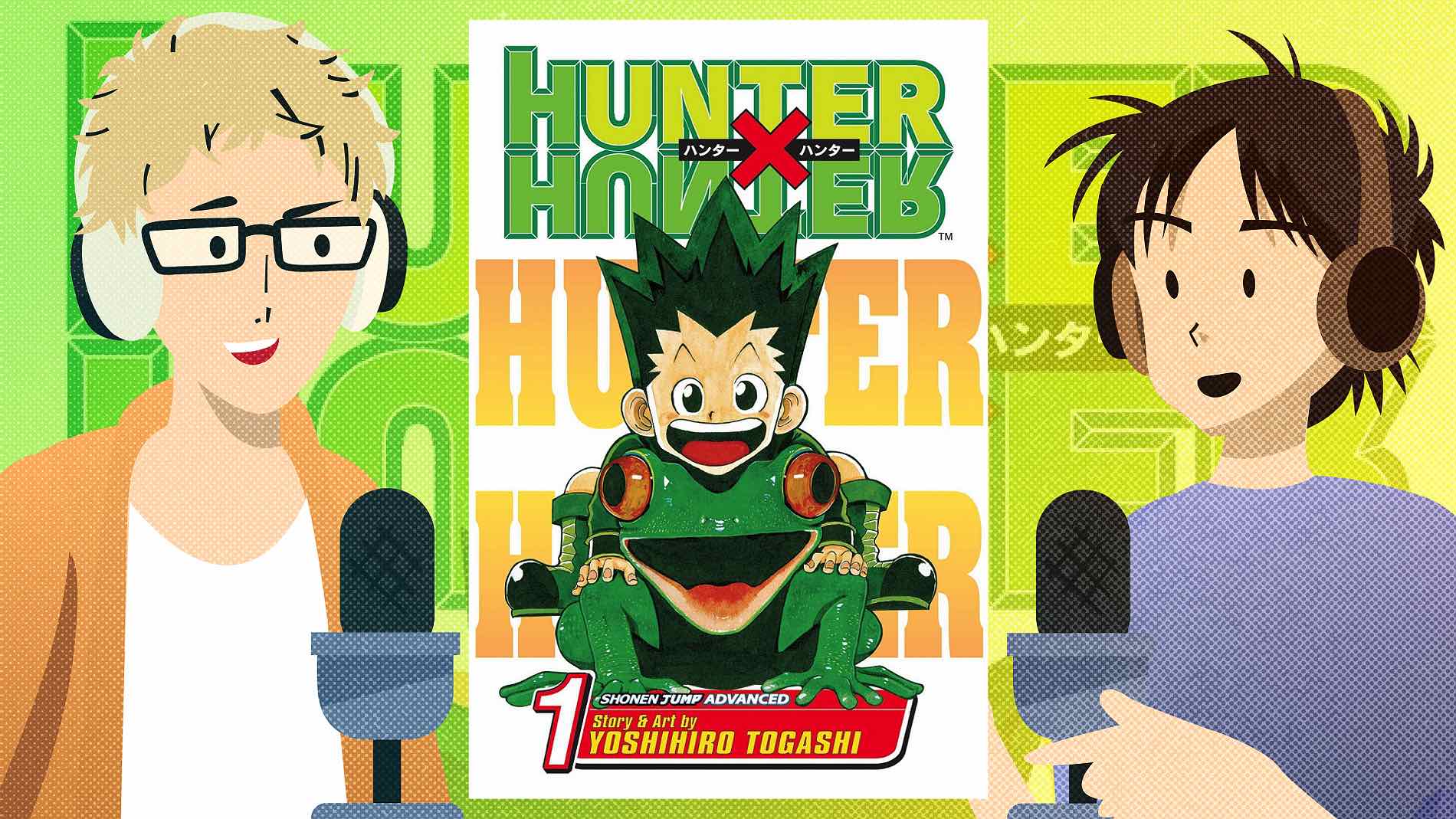
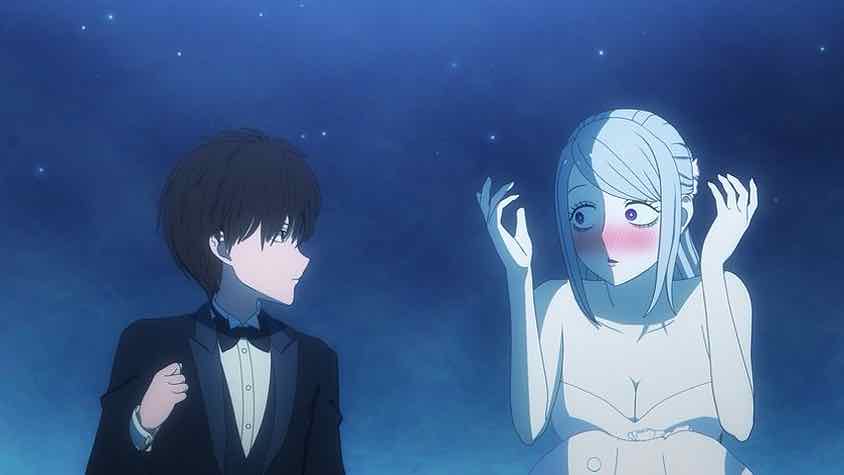
ibtachi
April 19, 2023 at 12:21 amHonestly, what Makoto-sensei has created is truly a testament to the medium itself.
I find myself just marveling more at each episode, how each development compounds on everything that came before. At this point, watching an episode is almost like guided meditation (if you’ve ever experienced it). I have complete trust in the flow of the narrative river that Makoto-sensei has created.
Guardian Enzo
April 19, 2023 at 6:49 amIt is very meditative, no doubt.
DukeofEarls
April 19, 2023 at 3:40 amReally happy to see Einar is there as Thorfinn formulates his voyage to Vinland. I’ve been praying he is one of the Vinland colonists since early this season. Please don’t let him die before we reach that point!
Speaking of the Sagas – Native Americans (skraelingers) play very prominently in the story of Vinland as passed down to us through the sagas. I’m curious how a smart story like this will parse their role.
Unlike 20th century environmentalist “propaganda” in the US, the natives also included many warrior cultures that traded slaves. They also were supposedly (according to the sagas) one of the main reasons the viking settlement of Vinland failed. These similarities existed in spite of the vast cultural differences between the old and new world.
Is it going to be a bad end where no matter where you go, slavery and war have already established themselves there? Or will it be a goofy, lacking nuance end with “peace pipe” stereotypical natives?
I’d prefer the former – and of course, war and slavery still persist in our modern world. But I’m also a little depressed that both options aren’t fully satisfying to me.
Stewart
April 19, 2023 at 3:40 pmYukimura doesn’t think war is something that has to be inevitable but the story acknowledges and critizes peoples’ believe that it has to be and how that can lead to wars in situations were it could’ve been avoided. He said this during his interview with Gigguk. The manga’s final arc is still ongoing and without going into details I think that’s its protaying his belief in a well written and nuance way so far( it’s not perfect though, ). The ending isn’t out yet so this is just a theroy but I don’t think the final point of the manga will that war/ slavery will always exist but to inspire the reader to carry on Thorfinn’s fight against humanity impulses towards violence. To have hope that we can one reach Thorfinn’s dream.The final section of the story is even called ” The Thousand Year Voyage”.
DukeofEarls
April 20, 2023 at 6:09 am“the story acknowledges and critizes peoples’ believe that it has to be and how that can lead to wars in situations were it could’ve been avoided”
Funny thing is, based on the sagas, it sounds like the violent conflict with the natives falls squarely into this category. My memory is shaky, but I recall an unprovoked attack by the Vikings leading to retaliatory attacks by the natives. So I suppose it could fit with the message, but that would still be a pretty depressing end to Thorfinn’s story – a total failure. Though I suppose we were never in this for a happy ending.
Alonom
April 19, 2023 at 5:32 amhave you perhaps seen Gigguk’s interview with Yukimura? Really interesting.
https://www.youtube.com/watch?v=F8eKBtO5tUo
Guardian Enzo
April 19, 2023 at 6:50 amHad not seen that, thanks for sharing.
Pastuzo
April 19, 2023 at 12:45 pmThat was a really good interview. Thanks for the share.
E
April 19, 2023 at 10:42 amYou really know the work is good if your write-up is good. Aaaa I really have to get back to this series. It is kind of frustrating how I cannot enjoy it as much as I had before, but will try. I really love your write ups!
Guardian Enzo
April 19, 2023 at 11:56 amEr – thanks. I guess? ROFL.
It’s definitely easier to write about series that are profound than those that are shallow, that’s for sure.